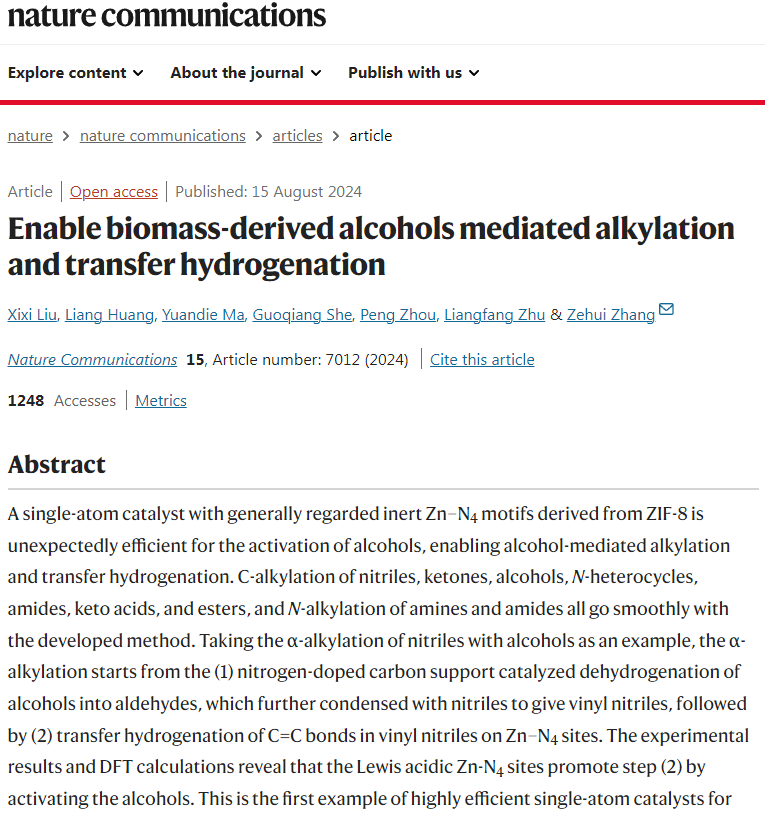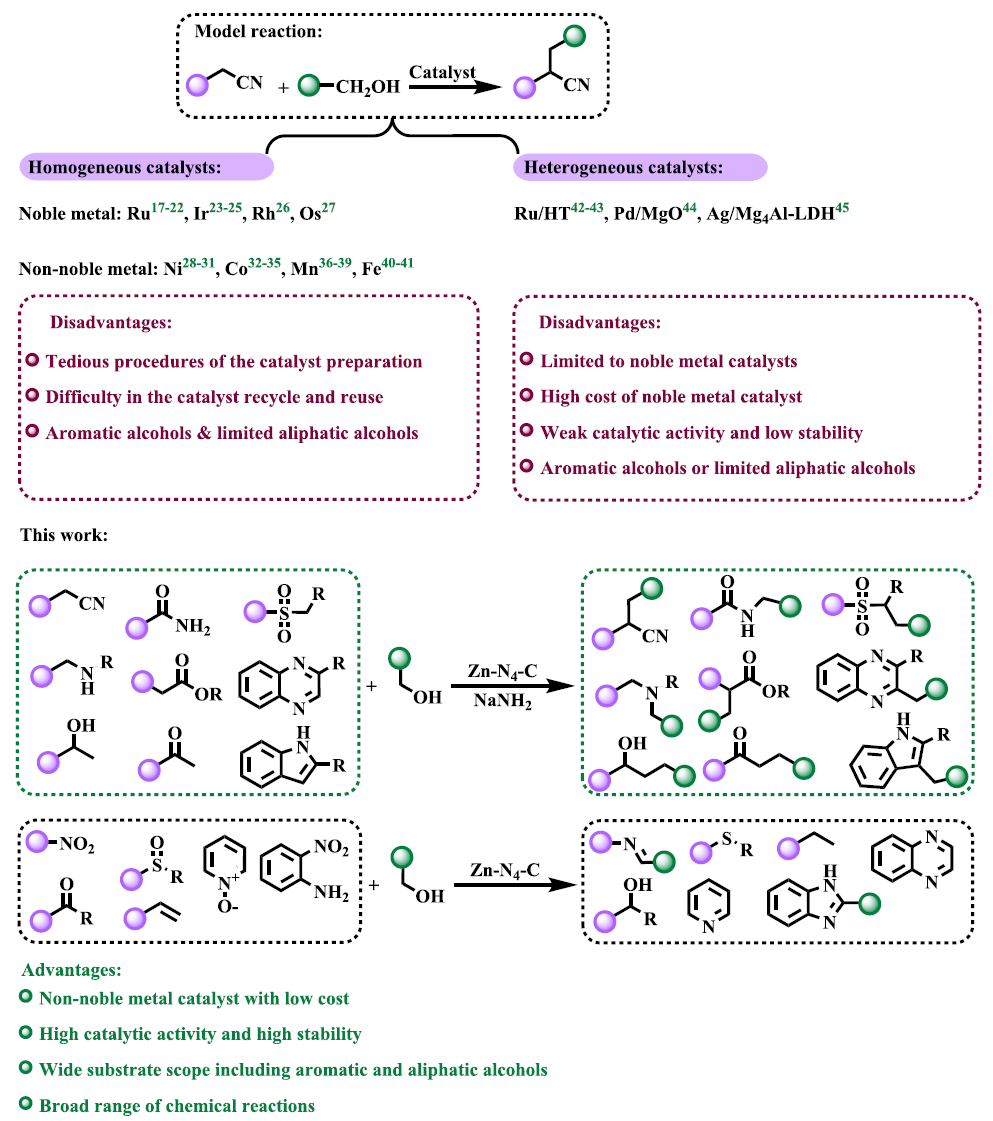Prof. Zehui Zhang has made significant progress in the field of high-value transformation of biomass resources. His latest work, titled "Enabling Biomass-Derived Alcohols Mediated Alkylation and Transfer Hydrogenation," was published in Nature Communications on August 15th, 2024. Prof. Zhang is the only corresponding author and SCMU is the first corresponding affiliation.
Carbon-carbon (C-C) bonds form the fundamental backbone of organic compounds, supporting the structure of countless natural products, pharmaceuticals, and materials. The ability to efficiently construct these bonds is pivotal to advancements in organic synthesis, biochemistry, drug development, and materials science. Traditional methods, such as the Grignard, Diels-Alder, Wittig, and Aldol reactions, have each addressed key challenges in C-C bond formation. However, modern synthesis increasingly relies on transition metal-catalyzed cross-coupling reactions, which, while effective, often involve expensive and toxic reagents. This highlights the ongoing need for greener, more sustainable synthetic strategies. In this context, non-toxic alcohols have gained attention as promising electrophilic reagents. The direct construction of C-C bonds by activating the α-Csp3-H bond of alcohols presents an opportunity to enhance synthesis efficiency, lower costs, and broaden the scope of chemical applications, making it a highly impactful approach. One such important structural unit is α-alkylated nitriles, which are precursors for a wide range of compounds, including carboxylic acid derivatives, amines, ketones, oxazolines, and numerous bioactive molecules. The "hydrogen borrowing strategy" offers an atom-economical and environmentally friendly method for synthesizing α-alkylated nitriles by activating both the α-Csp3-H bond of alcohols and nitriles, with water as the sole byproduct.
Prof. Zhang’s work presents a groundbreaking advance: the development of a single-atom zinc catalyst with a Zn-N4 structure, prepared via ZIF-8 pyrolysis. This catalyst facilitates the alpha-alkylation of nitriles with biomass-derived alcohols and has broad applications in C-alkylation reactions involving ketones, alcohols, N-heterocycles, amides, ketoacids, and esters, as well as in N-alkylation of amines and amides and various hydrogen transfer reduction reactions. Notably, this is the first highly efficient single-atom catalyst to utilize biomass-derived alcohols as both alkylating agents and hydrogen donors in organic transformations.
Professor Zhang's research group focuses on the concept of "green chemistry," designing novel catalytic reaction systems and conducting research in renewable biomass energy chemistry, green organic synthesis, and heterogeneous catalysis. In recent years, the team has published a series of significant results in prestigious international journals such as Nature Communications, Science Advances, Chem, Angewandte Chemie, JACS, Advanced Materials, and Chemical Society Reviews. These contributions have made a substantial impact in the fields of biomass catalytic conversion and green chemistry.


Read more:
https://doi.org/10.1038/s41467-024-51307-8
https://www.nature.com/articles/s41467-024-51307-8
https://www.scuec.edu.cn/hxx/info/1020/4390.htm